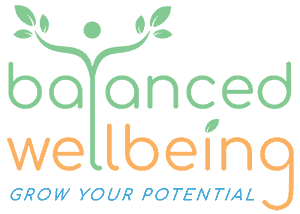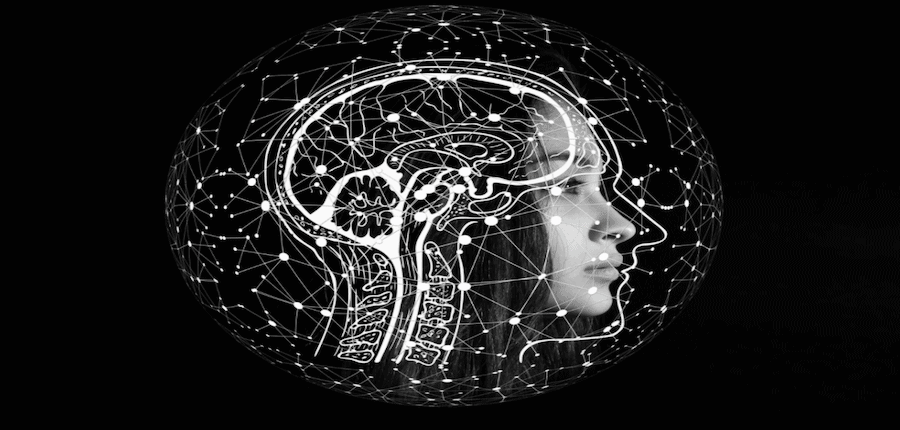A couple of weekends ago I listened to a very informative brain health summit. It was called Alzheimer’s The Science of Prevention (1). It reinforced that, for the most part, brain diseases like dementia, Alzheimer’s, and pretty much a bunch of other chronic degenerative diseases, result due to inflammation, reduced nutrients, and a build up of toxins over time.
This is a topic very close to my heart. My father ultimately died of Lewy Body Dementia. You might recall that actor Robin Williams had the disease when they did an autopsy after he suicided. This brain disease is one of a few vicious killers. A summary of the various dementia’s is below.
The good news is that it is preventable and reversible if we get it early enough. Despite that my dad was diagnosed with it a year before he died, he was 90 when we lost him. Dad had always been magnificent with his health and lifestyle so the effects of the disease were only really evident in the last three years of his life. It was an awful experience to witness his decline. We are so grateful for all the healthy years we had with him. So, we too can prevent and or delay its onset. Read on.
The series was very informative so I thought I would share it here with you. I added information from one of the speakers, Dr Dale Bredesen, who wrote an excellent book I had previously read: The End of Alzheimer’s (2017; 2). Dr. Bredesen comprehensively discusses in his book the research he has been doing at the Buck Institute in America for the last couple of decades. Fascinating read where he offers the science and the strategies behind preventing and even reversing Alzheimer’s.
Of course, if you have any derogative brain or mood symptoms, always discuss it with your doctor and or call Dr Marie Anderson on 0411 319 990. We have a neuropsychologist, Dr. Margaret Turner, who can undertake some testing if you are particularly concerned.
So here is a summary. I hope it helps to make a difference to your brain health moving forward.
The various dementias below all include a general cognitive and memory decline:
- Vascular Dementia is caused by reduced blood flow to the brain due to a series of small strokes.
- Frontotemporal Dementia is characterised by behaviour changes and difficulty speaking.
- Lewy Body Dementia includes visual hallucinations, delusions, and increased sleeping.
- Alzheimer’s disease features amyloid plagues and neurofibrillary tangles in the brain, and a severe decline in the ability to care for oneself.
- Subjective Cognitive Impairment (SCI) involves a decline in neuropsychological functioning compared to earlier years.
- Mild Cognitive Impairment follows SCI whereby cognitive impairment declines further. But, individuals typically can continue to carry out activities of daily living. It may lead to Alzheimer’s but not always.
EPISODE 1: THE ALZHEIMER’S EPIDEMIC
The cause of Alzheimer’s disease
- Amyloid plagues develop to protect the brain from threats.
The reasons why Alzheimer’s has reached epidemic
- Unhealthy lifestyles
- Affects significantly more women than men (see potential reason under stress below)
What three threats cause a good brain to degenerate
- i) inflammation, ii) reduced brain-boosting molecules such as nutrients and hormones, and iii) an increase in toxins.
- Inflammation increases free radicals, which damage the growth, development, and survival of cells and can impair our DNA.
EPISODE 2: UNTANGLING ALZHEIMER’S
The signs and symptoms of Alzheimer’s can creep up over a decadeDifficulty remembering and recognising faces;
- Other memory problems;
- Confusion;
- Mental fatigue or fuzziness especially late in the day;
- Increasing disinterest in complex activities including reading, conversations, movies;
- Difficulties with speaking and mixing up words;
- Slowing down of thinking;
- Anxiety about driving, getting lost, and diminished spacial skills;
- Sleep difficulties;
Potential precursors to Alzheimer’s and dementia
- Prediabetes, diabetes, overweight, obesity, a deficiency in vitamin D, unmanaged stress, persistent burnout, inactivity, and heart disease.
The mechanisms that leads to Alzheimer’s
- Years of an unhealthy lifestyle eg processed diet, sedentary behaviour, sugar.
- The three threats produce amyloid plagues that take over the space between brain cells (neurons) and destroy brain synapses, which interferes with the neurons communicating.
The reasons why pharmaceutical treatments fail
- To date, the available drugs do not prevent or slow down Alzheimer’s. At best, drugs may lessen some memory or confusion symptoms.
EPISODE 3: THE ALZHEIMER’S PREVENTION TOOLKIT
- Healthy diets and effective supplements
- Removing toxins from our environment and lifestyles
- Exercise for a healthier brain
EPISODE 4: HOW TO CHANGE YOUR BRAIN FOR THE BETTER
- Genetics is not our destiny; epigenetics allows us to change our genetic outcomes
- We can rewire our brain’s connections to improve our brain health
- Growing new brain neurons by changing our lifestyles
EPISODE 5: DIABETES AND ALZHEIMER’S, A NOT SO SWEET CONNECTION
- Balancing our blood sugar is critical for brain health and increased energy
- When blood sugar is elevated it affects how insulin works
- Diabetes and sustained high blood sugar increases the risk of developing Alzheimer’s
- Alzheimer’s is now being called type 3 diabetes
EPISODE 6: EATING TO PREVENT ALZHEIMER’S
The best foods for our brain health
- An anti-inflammatory diet because it reduces cytokines, which if proliferate, can affect the effectiveness of the immune response
- Eat diet high in antioxidants to reduce free radicals
- Eat high complex carbs, whole foods, fibre nurtures gut bacteria, increase good fats (eg olive oil, avocado), plate = 75% colourful veggies + protein of choice eg tempeh, nuts, seeds, legumes/ beans, grass fed meats, pastured free range chicken and eggs, oily fish (ie SMASH – salmon, mackerel, anchovies, sardines, herring)
The worst foods for our brain health
- Processed food and sugar degenerates brain health and increases inflammation in the body
- High sugar diet leads to high blood sugar, which leads to a less responsive brain (eg brain fog)
- Highly processed grains are converted into sugar too possibly leading to elevated blood sugar levels.
Beverages that reduce our risk of Alzheimer’s
- Water, herbal teas, non-carbonated drinks
Science informs us that ketosis, fasting, and caloric restriction improves brain health
- Fasting increases the brain derived neurotrophic factor in the brain (BDNF), which helps brain cells grow, strengthens synapses so neurons communicate better, and reduces ageing.
- If our homocysteine (an amino acid that makes proteins) is high it doubles the chance of getting Alzheimer’s.
EPISODE 7: THE GUT-BRAIN CONNECTION
Using food, probiotics, and prebiotics to nurture the microbiome
- Probiotics – gut buddies regulate our metabolism eg if we are hungry or full; lifestyle, foods, stress all affect our microbiome health; take supplements or fermented foods like sauerkraut or kimchi
- Prebiotic fibre feeds the probiotics eg take supplements or dandelion greens, garlic, onions, leeks, artichokes, acacia, jicama
- Trillions of gut bacteria manufacture vitamins and minerals
A leaky gut is when the gut lining becomes more permeable due a health depleting diet. It affects the brain because toxins and bacteria can leak through the intestinal wall into the bloodstream. This can cause a reaction from the immune system and hence increase inflammation in the body.
Inflammation is linked to gut health
EPISODE 8: STRESS AND ALZHEIMER’S
Our stressful modern lives affects our brain function
- Chronic stress increases inflammation, which leads to disease, kills brain cells, and it amplifies brain and body degeneration
Cortisol (stress hormone) and chronic stress increases our risk of Alzheimer’s
- High levels of cortisol cause cell damage in the hippocampus (the memory centre). Degeneration of this centre leads to Alzheimer’s
- Damages gut lining and permeability leading to leaky gut
Strategies to reduce stress and improve our lifestyle to improve brain health and immune system
- Meditation, exercise, relaxation, nature exposure all reduce cortisol and inflammation
- House plants are good too
- Looking at photos of natural scenery can lower cortisol
- Relaxation and meditation increases BDNF
- Reduce micro-stresses ie ongoing, consistent, persistent, and sustained multi-tasking activities. Research shows that women particularly are affected by stress more due to their multi-tasking and due to hormonal reasons. This may be why they are prone to Alzheimer’s more. Stress resilience is thus extremely important.
EPISODE 9: MOVE FOR A BETTER BRAIN
Exercise is pivotal to brain health and Alzheimer’s prevention.
- It increases BDNF.
Getting outdoors in nature and sunlight can increase BDNF. Think of BDNF as fertiliser for the brain. It also increases brain plasticity and helps the brain wire and rewire so we learn faster, remember better, and age slower. - Exercise grows new brain cells, improves brain function, improves the immune system, and is good for the heart, bones, and muscles
Mild to moderate is good enough
Reduces inflammation, reduces cortisol in the body therefore reduces stress, changes our gene expression
EPISODE 10: THE POWER OF SLEEP, NATURE’S BRAIN TONIC
Different types of light can either help or decrease the quality of our sleep
Our lymphatic system cleans and refreshes our brain while we sleep
A good night’s sleep includes:
- Having a consistent daily sleep-wake schedule; stop caffeine by 2pm; get between 7-8 hours sleep when you can; have a nutrient rich diet; no alcohol 3 hours before sleep; exercise daily but stop 4 hours before bed; reduce blue light exposure 2-3 hours before bedtime because it reduces melatonin (blue light reducing glasses may help); relaxation activities before bed; darken and cool the room to 65-75F at night; nutritional supplements if needed; get tested for sleep apnoea; and sunlight exposure every morning to stop the melatonin in the brain.
- Magnesium is good for sleep so take in evening if needed
- Melatonin to assist with sleep if needed; it helps repair blood brain barrier
- Deep sleep increases BDNF and in turn improves our slow brain waves
EPISODE 11: AVOIDING BRAIN TOXINS, THE ROLE OF YOUR ENVIRONMENT
Exposure to toxins can be harmful to brain health and can even cause damage.
Eat organic and non-GMO foods wherever possible
Use a water filter where possible. Reduce water in plastics if you can as the plastic is known to seep into the water.
Air pollution can negatively impact our brain so reduce it in our homes
Over the counter drugs can increase our risk of developing Alzheimer’s
Toxins are fund in our water, personal health products, food, garden products, etc
EPISODE 12: SUPPORT YOUR BRAIN WITH SUPPLEMENTS
Effective supplement can help improve our sleep and brain function. Always buy the best quality affordable.
Why supplements?
- Not necessarily needed if we eat a diet rich in a variety of foods most of the time. Maybe only take on deficient days or weeks.
- Eat organic if affordable. Modern agriculture has depleted the soil of it nutrients compared to 100-200 years ago. Hence why organic food is beneficial because the soil is nurtured so the food is more nutritious.
Supplements can improve sleep, optimise brain health, and can help grow new brain cells.
- DHA/ Omega fatty acids – increase brain cells. There’s abundant fat in brain membranes hence why good fat is important. Best sources include fish oil, algae oil, and krill oil. A plant based version is flax seed oil. However, although it’s still good, the science says apparently that the ALA does not convert to DHA quite as well. They suggested algae oil for vegans.
Vitamin Bs and folate – B12 is vital for cognitive health. B9 lowers risk of Alzheimer’s. B1, B6, and B12 are the neuro vitamins because they support nervous function. - Vitamin D – is a hormone and is good for the microbiome; affects 800 genes; works like a wifi signal as it is required for good cell programming; reduces cognitive decline; regulates thyroid function, muscle mass, bone density, and insulin function; it gets developed from the cholesterol in our body. We can become deficient from a low fat diet, little sunlight, and staying indoors. A deficiency can lead to seasonal affective disorder, depression, and Alzheimer’s. 10-15 mins of sunlight daily can increase natural exposure.
- Turmeric (ginger family) – curcumen is an anti-inflammatory and an antioxidant. Reduces amyloid plagues and neurofibrillary tangles (tau) in the brain, both of which contribute to Alzheimer’s.
- MCT oil is a healthy fat that increases energy in the brain. It’s made from coconut fat.
- Organic coffee apparently also reduces Alzheimer’s because it acts as an antioxidant; it nurtures gut bacteria due to the polyphenols; caffeine has been shown to inhibit amyloid plagues in the brain; like turmeric and cruciferous veggies turns on 200 genes that help to reduce toxins. Of course drink in moderation!! And, for some of you like me, if your body doesn’t process caffeine well, avoid it.
- Alzheimer’s The Science of Prevention. (2020). Retrieved from: https://scienceofprevention.com/
- Bredesen, D. (2017). The End of Alzheimer’s: The First Programme to Prevent and Reverse the Cognitive Decline of Dementia. Vermilion: London.


